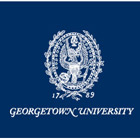- News and articles
- Find usIDP AustraliaIDP BahrainIDP BangladeshIDP CambodiaIDP CanadaIDP ChinaIDP EgyptIDP GhanaIDP Hong KongIDP IndiaIDP IndonesiaIDP IranIDP JordanIDP KenyaIDP KoreaIDP KuwaitIDP LebanonIDP MalaysiaIDP MauritiusIDP Middle EastIDP NepalIDP New ZealandIDP NigeriaIDP OmanIDP PakistanIDP PhilippinesIDP Saudi ArabiaIDP SingaporeIDP Sri LankaIDP Taiwan, ChinaIDP ThailandIDP TurkeyIDP UAEIDP VietnamIDP Corporate
- Social
- English
- Where we operate
- Courses
- Scholarships
- IELTS
- About IDP
- Student Essentials
- News and articles
- Find us
- Find us
- Find nearest IDP offices
- IDP Australia
- IDP Bahrain
- IDP Bangladesh
- IDP Cambodia
- IDP Canada
- IDP China
- IDP Egypt
- IDP Ghana
- IDP Hong Kong
- IDP India
- IDP Indonesia
- IDP Iran
- IDP Jordan
- IDP Kenya
- IDP Korea
- IDP Kuwait
- IDP Lebanon
- IDP Malaysia
- IDP Mauritius
- IDP Middle East
- IDP Nepal
- IDP New Zealand
- IDP Nigeria
- IDP Oman
- IDP Pakistan
- IDP Philippines
- IDP Saudi Arabia
- IDP Singapore
- IDP Sri Lanka
- IDP Taiwan, China
- IDP Thailand
- IDP Turkey
- IDP UAE
- IDP Vietnam
- IDP Corporate
- Social
- Language Switcher
- IDP Education /
- Colleges and Universities /
- United States /
- Georgetown University /
- Bachelor of Arts in Compute...


Location
United States
Qualification
Bachelor Degree
Duration
8 Semester(s)
Next intake
18 August 2025
Course info
The A.B. in Computer Science, Ethics, & Society (CSES) combines strong, A.B.-level technical training in CS with deep study of the ethical and policy challenges relevant to CS, as well as tools and frameworks to build responsible practices and governance. Students interested in this major might include, for example, those who want to go on to Law School to specialize in Technology Law, master's programs in Public Policy to specialize in Tech Policy, or simply have a deep interest in understanding the technical, social, and ethical issues at the heart of computer science developments that are reshaping society. A key commitment of this major is attention to integration and application of ethical considerations within CS work. The CSES major is a modified version of the A.B. that: reduces the number of CS electives, adds electives specifically related to digital ethics, changes the required math course from Calculus to Probability and Statistics (MATH-1040), and adds a required Introduction to Tech, Ethics, and Society course, Digital Law & Policy course, and a project-based Senior Capstone course.
- Scholarships
- Internships
Course fees are indicative and should be used as a guide. to get an accurate price.
Duration: 8 Semester(s)
| Intake | Location |
|---|---|
| Fall (August), 2025 | Washington |
| Fall (August), 2026 | Washington |
Application Deadline
The application deadline isn't available Speak to an IDP counsellor for more detailed information
Further information
If you aren't eligible for the above entry requirements, you might ant to explore pathway options at Georgetown University. If you want to find out more, speak to our counsellors.
THE World Ranking
201st / 1250
THE World RankingWhat our students think
We’ve haven’t received any reviews for this institution yet.
Recommended for you
- THE World Ranking:58
- Bachelor Degree
- Providence , United States
- Next intake:09/2025
- Entry Score: IELTS 8.0
- USD68612 (2025)
- THE World Ranking:58
- Advanced Certificate
- Providence , United States
- Next intake:09/2025
- Entry Score: IELTS 8.0
- USD34306 (2025)
- THE World Ranking:58
- Combined Baccalaureate and Master's Prog
- Providence , United States
- Next intake:09/2025
- Entry Score: IELTS 8.0
- USD68612 (2025)
- THE World Ranking:58
- Bachelor Degree
- Providence , United States
- Next intake:09/2025
- Entry Score: IELTS 8.0
- USD68612 (2025)
- THE World Ranking:58
- Bachelor Degree
- Providence , United States
- Next intake:09/2025
- Entry Score: IELTS 8.0
- USD68612 (2025)
- THE World Ranking:58
- Bachelor Degree
- Providence , United States
- Next intake:09/2025
- Entry Score: IELTS 8.0
- USD68612 (2025)
- THE World Ranking:58
- Bachelor Degree
- Providence , United States
- Next intake:09/2025
- Entry Score: IELTS 8.0
- USD68612 (2025)
- THE World Ranking:127
- Honours
- Rochester , United States
- Next intake:08/2025
- Entry Score: IELTS 7.5
- USD126300 (2025)
Your action plan
Step 1
Shortlist your courses
Choose the best three courses you’re most likely to pursue.
Step 2
Check your eligibility
Get an instant in-principle offer for courses with the IDP FastLane tag.
Step 3
Apply through IDP Live
Fill out the form once and use it to apply to multiple courses.
How does IDP FastLane work?
With the FastLane 'Offer in Principle', you'll know in minutes if you'll be accepted!
Select an institution and course
Create your academic profile
Submit your application for an 'Offer in Principle'
Your chosen institution(s) will send you a decision in minutes!
Get ready to apply with an expert counsellor




